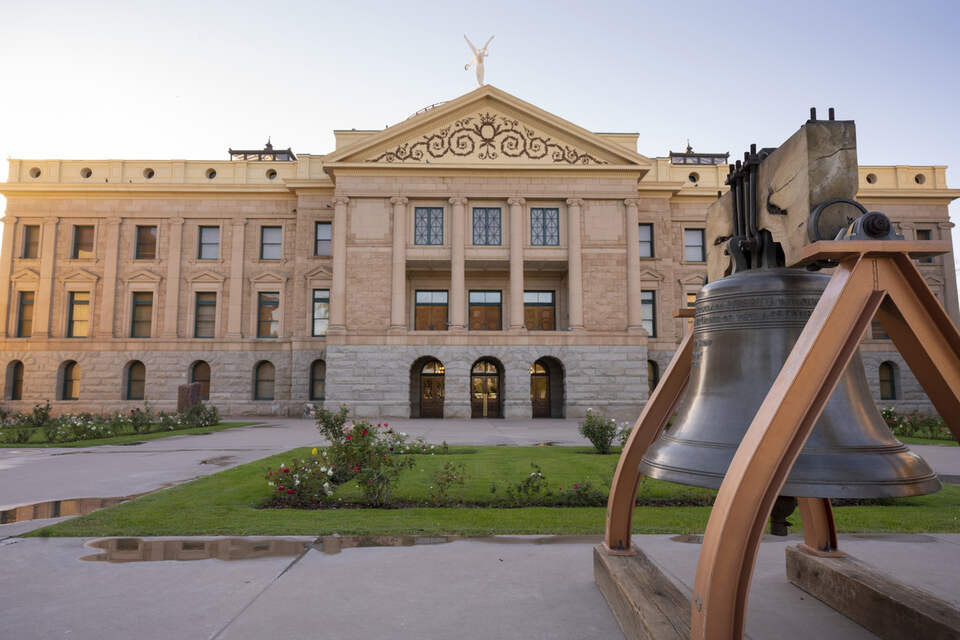
Arizona Steps Up Enforcement
The Arizona Department of Gaming (ADG) has taken aim at a new group of online gambling platforms, issuing cease-and-desist orders to seven operators accused of targeting state residents without a license.
This move marks Arizona’s second formal enforcement action in less than three months, and signals that the state is nowhere near done tightening the screws on unregulated gambling.
Who’s on the List and What They’re Accused Of
Arizona’s latest round of cease-and-desist orders names seven operators the state says are running unlicensed gambling services aimed at local residents. The list covers a wide swath of the digital gambling world, from sweepstakes casinos to sports betting to raffles.
- ReBet – identified by the ADG as an unlicensed sportsbook offering event wagering without state approval.
- Novig – a peer-to-peer betting exchange
- Stake.us – a prominent sweepstakes-style casino that’s already facing lawsuits in both California and Alabama for allegedly offering illegal gambling.
- BettorEdge and High 5 Casino – multi-vertical platforms offering various gambling products. They are also accused of offering a mix of gambling products that fall outside Arizona’s legal framework.
- Dallas Safari Club and Fanthem – accused of running unauthorized raffles
The regulator says these companies collectively offered illegal slot-style games, sports betting, sweepstakes models, horse wagering, and peer-to-peer betting, all without a state-issued license.
Serious Felony-Level Charges
The Arizona Department of Gaming didn’t hold back in its language. In its cease-and-desist notices, the agency labeled each of the seven platforms an “unlicensed and unregulated criminal enterprise,” accusing them of serious violations under state law.
The key charges include:
- Illegal control of an enterprise — a felony offense in Arizona
- Promotion of gambling — also a felony, tied to unauthorized gaming activity
The ADG ordered all named operators to immediately cease operations within Arizona, warning that failure to comply could result in further enforcement actions, including criminal prosecution.
The message here is clear: unauthorized gambling won’t be tolerated, regardless of how it's packaged or delivered.
ADG: “Illegal Gambling Has No Place Here”
ADG Director Jackie Johnson issued a firm statement underscoring the department’s stance:
“Illegal gambling, regardless of the platform or format, has no place in Arizona. Whether it’s online casino-style games, sweepstakes models or unauthorized sports betting, any operation that falls outside Arizona’s legal and regulatory framework will face enforcement action.”
She added that illegal platforms undermine Arizona’s economy and expose consumers to unregulated risks, praising licensed operators for contributing to a fair and accountable market.
Not the First Time
This isn’t Arizona’s first move against unlicensed gambling operators—and likely won’t be its last. Back in April, the ADG issued cease-and-desist orders to a different set of platforms, including:
- ARB Gaming, the company behind sweepstakes site Modo.us
- ProphetX
- MyBookie
- BetUS.com
Since then, ARB Gaming has made headlines for acquiring Publishers Clearing House out of bankruptcy—a move that surprised many in the industry, given the company’s own legal exposure in Arizona.
Even Prediction Markets Are Feeling The Heat
Arizona’s scrutiny isn’t limited to traditional gambling. In May, the ADG confirmed it had sent cease-and-desist letters to Kalshi and Crypto.com, both of which offer prediction markets. Director Johnson later publicly criticized the federal Commodity Futures Trading Commission (CFTC) for what she called a lack of oversight over event-based contracts tied to sports and politics.
What This Means for Operators and Players
The message from Arizona is clear: If you're offering gambling products in the state without a license, expect legal action.
For operators, the risk isn’t just regulatory, it's criminal. And for consumers, the ADG recommends verifying whether any online platform is legally authorized to operate in Arizona before depositing money or playing.
With Arizona now repeating its enforcement playbook, other states and operators are watching closely.
